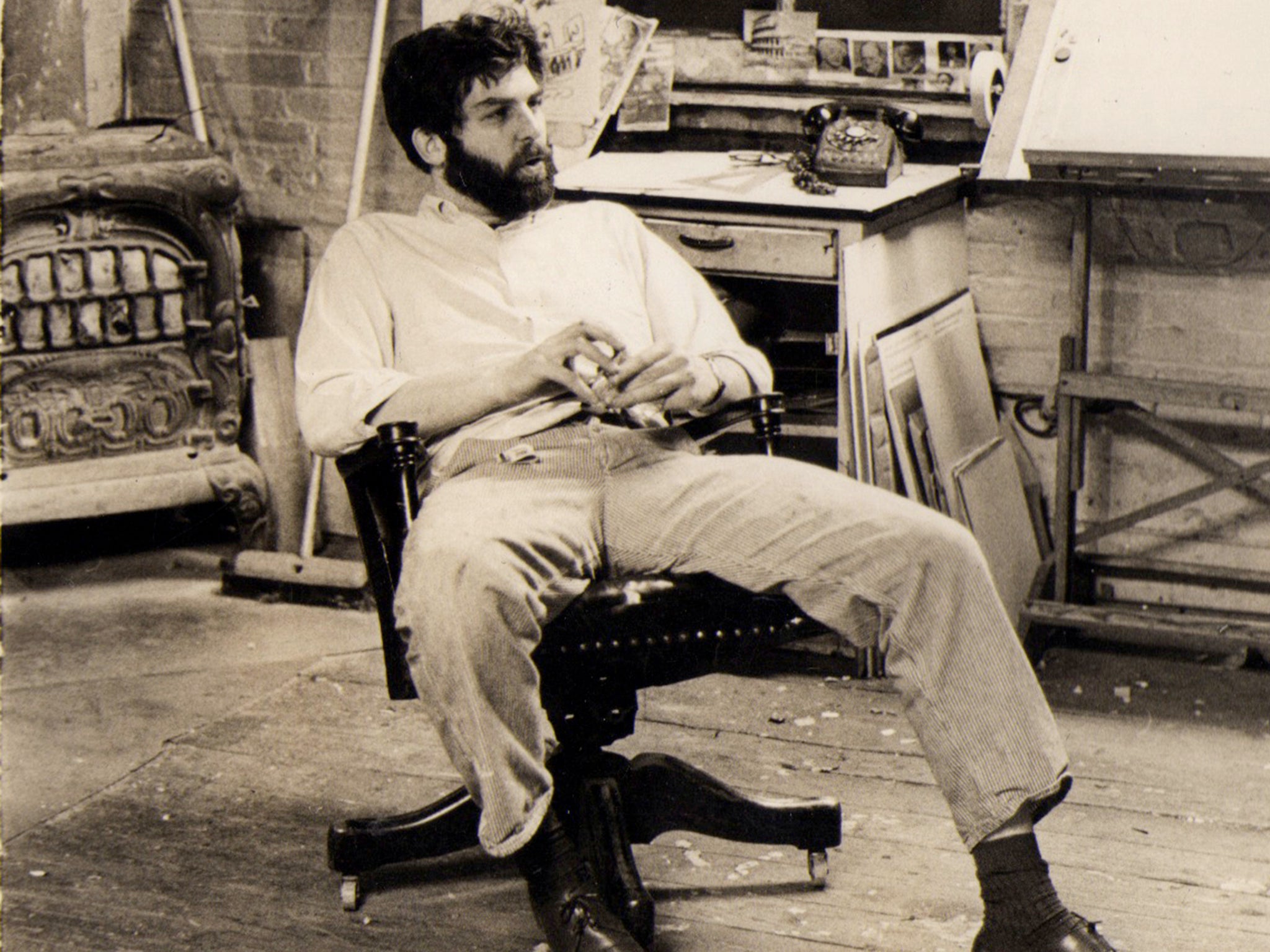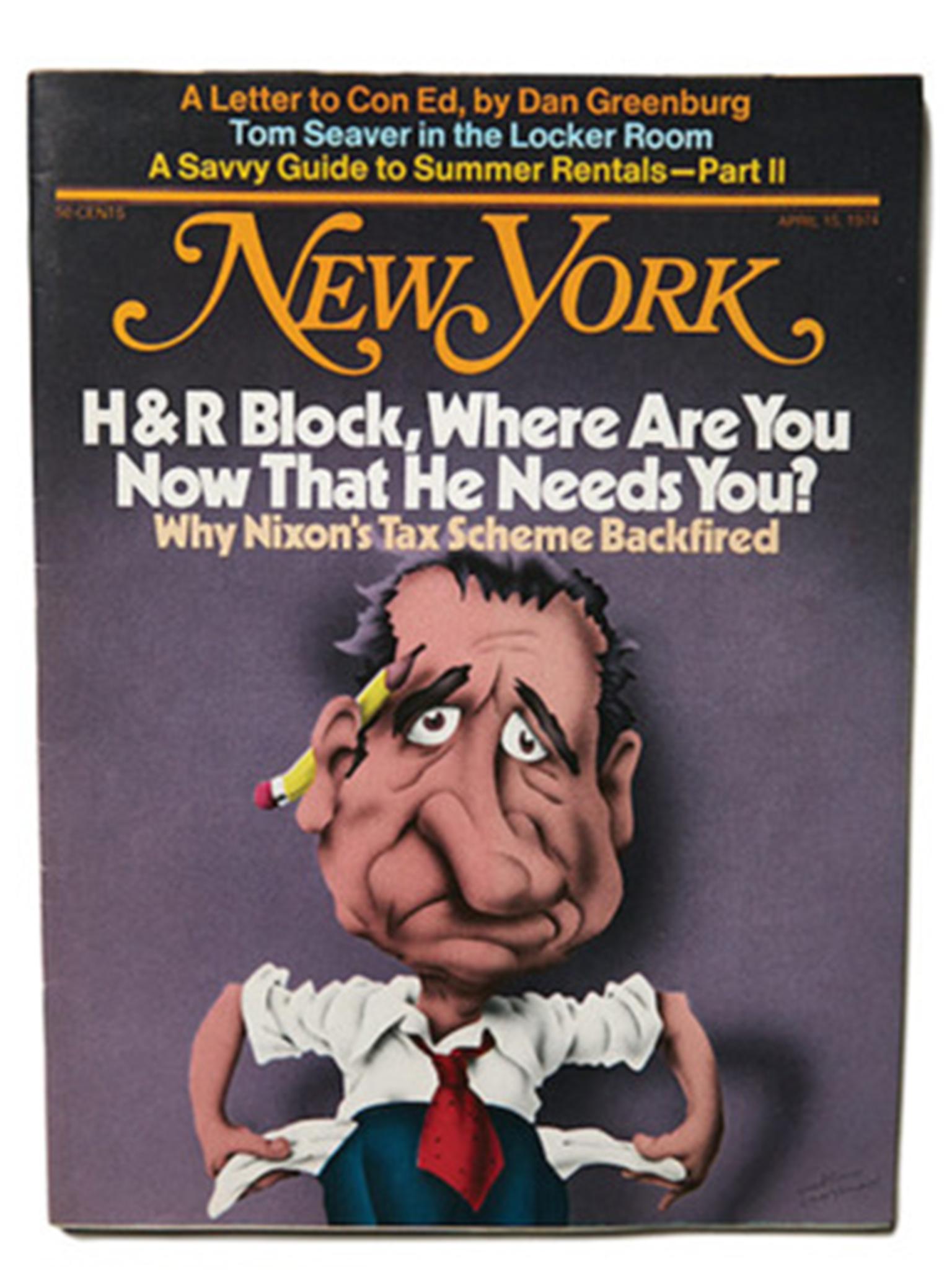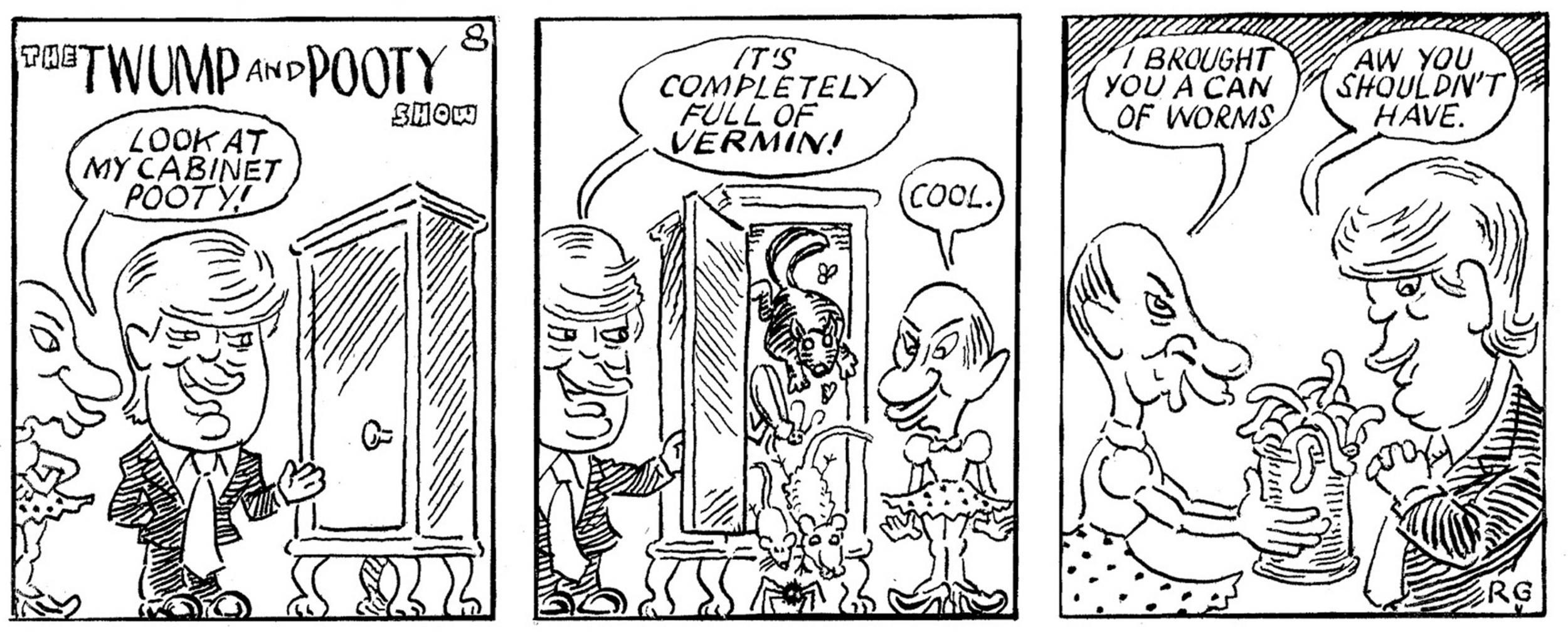Robert Grossman: Illustrator and cartoonist behind Airplane! poster who lampooned US presidents
From a Pinocchio-nosed Nixon to the Trump and Putin bromance, no president was safe from the New Yorker’s whimsical eye. And then there was that twisted jetliner...

Your support helps us to tell the story
From reproductive rights to climate change to Big Tech, The Independent is on the ground when the story is developing. Whether it's investigating the financials of Elon Musk's pro-Trump PAC or producing our latest documentary, 'The A Word', which shines a light on the American women fighting for reproductive rights, we know how important it is to parse out the facts from the messaging.
At such a critical moment in US history, we need reporters on the ground. Your donation allows us to keep sending journalists to speak to both sides of the story.
The Independent is trusted by Americans across the entire political spectrum. And unlike many other quality news outlets, we choose not to lock Americans out of our reporting and analysis with paywalls. We believe quality journalism should be available to everyone, paid for by those who can afford it.
Your support makes all the difference.Robert Grossman was a painter, cartoonist, sculptor and artist of the airbrush whose work adorned a number of Time magazine covers.
He also created the poster for the 1980 comedy film Airplane!
The New Yorker, who has died aged 78, used the airbrush as an artistic lance, lampooning presidents from Richard Nixon to Donald Trump in gorgeous magazine covers and acerbic comic strips.
The prodigious American illustrator and caricaturist designed book and record covers and contributed illustrations to a ream of publications, including Rolling Stone and National Lampoon.
He created a comic about a black superhero, Captain Melanin, in the 1960s, and received an Academy Award nomination in 1978 for Jimmy the C, a claymation short in which President Jimmy Carter sang a version of Ray Charles’s “Georgia on My Mind”.
Painting an aeroplane whose fuselage had somehow twisted itself into a knot made for one of the most distinctive movie poster of the Eighties.
Yet, he was best known as an equal-opportunity caricaturist, targeting cultural figures from Playboy founder Hugh Hefner (partially obscured by a comically large pair of breasts) to tennis player Jimmy Connors (drawn as an infant sticking his tongue out on the court), and tweaking presidents regardless of their political party.

He seemed to have a particular fondness for Nixon, who swept into office just as Grossman’s career was taking off in the late 1960s. For one Watergate-era cover of The Sunday Times Magazine, Grossman depicted the president as an overflowing tap, water plunging out of his steely nostrils. For National Lampoon, he imagined Nixon as an aubergine-nosed Pinocchio, with a Jiminy Cricket-like Henry Kissinger perched atop his proboscis.
While Grossman’s work was frequently incisive, says cartoonist Drew Friedman, it also had a whimsical quality that “set him apart from most of his best contemporaries, among them David Levine and Edward Sorel, who were masters at playing up the grotesque”.
In part, the whimsy was a result of Grossman’s favoured tool, the airbrush, which allowed him to effectively sculpt three-dimensional figures out of paint or ink. The technique was later adopted by humourists such as Terry Gilliam, although at the time Grossman first picked up an airbrush – as a child at his father’s silk-screen printing shop in Brooklyn – the device was not widely used in the art world.
“He made the airbrush an expressive medium, where before it was just an objective tool that commercial artists used to add dimension or take things out of an illustration,” said Steven Heller, a former New York Times art director who co-chairs the MFA design department at the School of Visual Arts in New York. “What Bob did was create a style that just jumped off the page.”

Robert Samuel Grossman was born in Brooklyn on 1 March 1940. His mother worked as a bookkeeper for his father, who painted in his spare time and instilled an appreciation of fine art in Bob and his siblings.
Grossman said he turned towards humour in the 1950s reading Mad magazine, which “appeared like a nearly divine revelation”, he once said.
He befriended the magazine’s founding editor, cartoonist Harvey Kurtzman, while studying at Yale University, where he edited the Yale Record humour magazine before graduating in 1961.
One of his designs for the Record, a parody cover of the “Yew Norker,” apparently helped him get a job at the New Yorker magazine, where he said he worked “as a sub-assistant cartoon editor” before becoming a freelance illustrator.
His marriages to Donna Lundvall and Vicki Morgan ended in divorce.

Survivors include his partner of 24 years, Elaine Louie; three children from his first marriage, Michael Grossman Rimbaud and Alex Emanuel Grossman, both of Manhattan, and Leila Grossman of Nashville, Tennessee; a daughter from his second marriage, Anna Grossman Pedicone of Manhattan; two brothers; and five grandchildren.
At the time of his death, Grossman had just completed an illustrated novel about the “Great Moon Hoax” of 1835, in which the New York Sun reported that winged beings lived on the surface of the moon. Titled Life on the Moon, the book is scheduled to be published in 2019.
Grossman had also written a comic strip, “Twump and Pooty”, lampooning Trump and Russian President Vladimir Putin. The serial followed in the tradition of his series about O-man (a heroic President Barack Obama) and Cap’n Bushy (a flying squirrel modelled after George Bush Snr).
He said he just couldn’t resist using fake names for his strips’ famous protagonists.
“The cowardly strategy of not calling people by their right names has been employed since the first fool told a funny story about a bear named Hairy, to avoid getting his head cut off by King Harry,” he told The Atlantic magazine in 2012.
“And it might possibly be funnier than drearily calling a spade a spade. The art of caricature enchants me for its similar ability to combine truth and falsehood in a strangely appealing way.”
Robert Grossman, 1 March 1940, died 15 March 2018
© Washington Post
Join our commenting forum
Join thought-provoking conversations, follow other Independent readers and see their replies
Comments